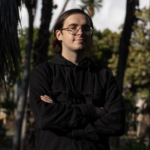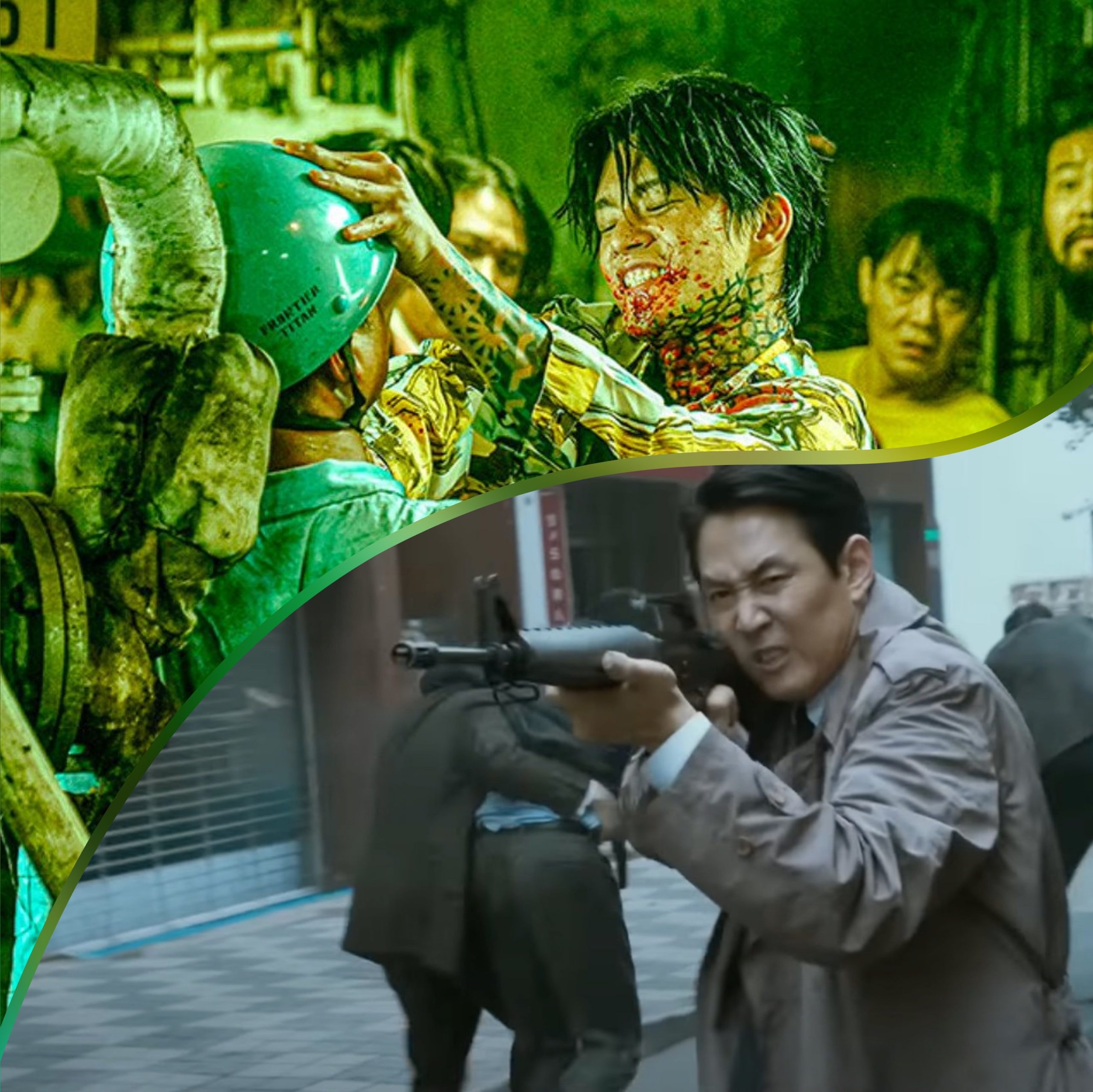Warning: The following contains spoilers for PROJECT WOLF HUNTING (2022) and HUNT (2022).
Over the course of HIFF42, I watched two South Korean films that were centered around and saturated with brutal violence: one considered it a spectacle, something that it assumed the audience wanted to see, and something that could easily be assigned moral value. The other, contrastingly, depicted violence as a savage means to a noble end, and questions if there even is such a thing as morally justified violence.
These films, of course, were PROJECT WOLF HUNTING, directed by Kim Hong-sun, and HUNT, directed by Lee Jung-jae, respectively.
In premise, PROJECT WOLF HUNTING is effectively a hyper-violent CON AIR (1997) at sea mixed in with some RESIDENT EVIL. In fact, it wouldn’t be too far of a stretch to consider this film to be a cinematic equivalent of the specific flavor of the “Survival Horror” genre that the RESIDENT EVIL series pioneered: a claustrophobic thrill-ride where death by corporate-owned-genetic-monster is around every corner. The film is brutal and bloody, with a wide, yet shallow cast of characters that exist solely to provide the film a larger body count. I don’t mean this as a condemnation, but as merely a statement of fact.
But because PROJECT WOLF HUNTING is concerned primarily with presenting violence in an aesthetically pleasing (or purposefully excessive) manner for the purposes of a spectacle – what with the buckets of blood and a cinematic eye that lingers upon actions and sites of bodily atrocity – it doesn’t concern itself with the potential moral ambiguity of the violence it depicts. The morality of violence, therefore, is quite simplistic, in PROJECT WOLF HUNTING: It all comes down to who the violence is inflicted upon, even if the violence is inflicted by the same character.
For example, when Alpha (Choi Gwi-hwa) brutally dispatches Jong-doo (Seo In-guk) with a sledgehammer, we are not intended to mourn Jong-doo, as he has been characterized as nothing other than a murderous psychopath. When he dies screaming in rage and agony, it is meant to be cathartic, even pleasurable, for the viewer.
However, when Alpha later kills Seok-woo (Park Ho-san), we are intended to feel sympathy, as the officer of the law has courageously fought against impossible odds to save others. Seok-woo is even given an “honorable” death, stating that he couldn’t “face his men” in the afterlife without at least seriously wounding Alpha (which he was successful in doing). Alpha, in a moment of uncharacteristic humanity, gives Seok-woo the moment to gasp this statement before executing him, as if to give the man a chance to die with dignity. This violent death is therefore presented to us in a more tragic light, as to evoke sadness.
In stark contrast to the spectacular violence of PROJECT WOLF HUNTING is the politically charged violence of HUNT, which, in retrospect, makes sense given it’s context: an espionage thriller set amid the rising tensions of the Cold War, as a South Korean intelligence agency seeks out a North Korean mole and unravels a plot to assassinate the nation’s president. Torture, brutality, and even murder are inflicted upon individuals in the name of national security. It isn’t something fun to watch, namely because the “true” nature of those that are beaten, bloodied, or shot are left largely ambiguous, as are those who inflict the violence.
There are no card-carrying villains in HUNT, nor are there heroes. North Korea may be a de-facto monarchy, but what we see of South Korea is no better – with savage beatdowns given to citizens by police, and even the wholesale massacre of men, women, and children resisting martial law. Our protagonist, Foreign Unit chief Park Pyong-ho (SQUID GAME’s Lee Jung-jae) is revealed to be the same North Korean mole he has been hunting for. His actions have led to the deaths of many operatives, and would’ve led to the assassination of the South Korean president by North Korean insurgents.
In any other film, Pyong-ho would be the villain. But we learn that his motivation came from a pure place: the potential for a reunified Korea with minimal bloodshed. We see the heartbreak in his eyes when his superior reveals that the plan has shifted from peaceful reunification to bloody salt-the-earth conquest. It’s this realization that convinces him to save the president’s life: all the violence he wrought would lead only to more violence.
Likewise, in any other film Domestic Unit chief Kim Jung-do (Jung Woo-sung) would be our hero: He’s a strongly principled veteran who loves his country. But it’s revealed that he is a key player in a domestic plot to assassinate the current regime as revenge for the aforementioned massacre of citizens. An event he was, as a soldier, compelled to participate in. His success – exacting justice upon a bloody and tyrannical regime – would’ve led to chaos, and an unknown future for South Korea. Perhaps he and his conspirators could’ve rebuffed the North Korean invasion and rallied the nation under the banner of a more just democracy.
We, however, will never know, since Jung-do’s revolution died with him. So too does Pyong-ho die with his dream of a more peaceful world, shot to death by the person he cared for the most. The violence depicted in HUNT is used by many as a means to an end, with the most noble of intentions. But the fruits of violence appear to only be more violence.
After watching both films, I came to the realization that both films ask two very different questions to the audience regarding violence. Project Wolf Hunting asks if you would like to see something gruesome and spectacular that you don’t have to think too hard about, while Hunt asks you if any of the violence you’ve seen on-screen was justified, all while not having a definitive answer itself.
 My name is David Murray. A resident of O’ahu for nearly my entire life, I am currently a Senior at UH Manoa working towards my Bachelors of Arts in Creative Media, but I previously studied English at University of Montana Western. I plan on pursuing a master’s degree in screenwriting and/or Film studies. On a personal note, I am abit of a genre nerd, with a special interest in Horror, Animation, and Cult films. While my aspirations lie in higher education (and hopefully a career in Screenwriting), it is also my goal to write and create content about pieces of media (Film, Television, etc.) that captivate me or otherwise would be unlikely to garner any serious academic attention.
My name is David Murray. A resident of O’ahu for nearly my entire life, I am currently a Senior at UH Manoa working towards my Bachelors of Arts in Creative Media, but I previously studied English at University of Montana Western. I plan on pursuing a master’s degree in screenwriting and/or Film studies. On a personal note, I am abit of a genre nerd, with a special interest in Horror, Animation, and Cult films. While my aspirations lie in higher education (and hopefully a career in Screenwriting), it is also my goal to write and create content about pieces of media (Film, Television, etc.) that captivate me or otherwise would be unlikely to garner any serious academic attention.

The mission of the HIFF ONLINE CREATIVES & CRITICS IMMERSIVE (HOCCI) program is to encourage film criticism in Hawai‘i by using the influencer branding strategies to spark career opportunities in the State and not be hampered by oceans, state borders and distance, because geography is no longer a barrier. Ten mentees participated in this program, giving them press industry access to HIFF42. In addition, the cohort attended mentoring sessions by working critics in the online film journalism community in unique silos: Writing, Podcasting, Video Essays and Vlogging.
Mahalo to DBEDT Creative Industries and Creative Lab Hawaii for their support.



